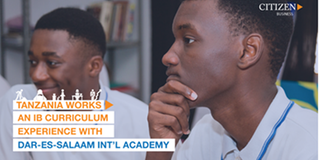Why do most International Schools practice an IB curriculum?

What you need to know:
- Some 80% of the most expensive schools in Tanzania have adopted the IB curriculum, raising curiosity; is it better than the Tanzanian syllabus?
Tanzanian government and some private schools are supposed to follow NECTA syllabus. But why do private international schools in Tanzania feel the need to adopt foreign syllabuses like Cambridge and International Baccalaureate (IB).
Some 80% of the most expensive schools in Tanzania have adopted the IB curriculum, raising curiosity; is it better than the Tanzanian syllabus?
What is an IB curriculum?
Founded in 1968, the International Baccalaureate® (IB) is a non-profit educational foundation offering four highly respected programs of international education that develop the intellectual, personal, emotional and social skills needed to live, learn and work in a rapidly globalising world.
Schools must be authorised, by the IB organisation, to offer any of the programs designed by the institution.
The IB has a hard-earned reputation for high standards of teaching, pedagogical leadership and student achievement.
It works with schools, governments and international organisations to develop challenging programs of international education and rigorous assessment.
What are the programs?
Primary year program (age 3-12)
Middle year program (age 11-16)
Diploma year program (age 16-19)
Career related program (16-19)
How is IB different from other curricular?
The IB's programs are different from other curricula because they:
• Encourages students of all ages to think critically and challenge assumptions
• Develop independently of government and national systems, incorporating quality practice from research and our global community of schools
• Encourage students of all ages to consider both local and global contexts
• Develop multilingual students.
What are the benefits for the students?
Besides students receiving fully funded well known international scholarships from their schools and respective universities, they are also;
- encouraged to think independently and drive their own learning
- take part in programs of education that can lead them to some of the highest ranking universities around the world
- become more culturally aware, through the development of a second language
- more able to engage with people in an increasingly globalised, rapidly changing world.
Let’s hear more from Tini Bennet, Head of school at Dar es salaam International Academy (DIA), a school that practices an IB curriculum.
For more information on the IB curriculum visit www.ibo.org and DIA visit www.dia.co.tz




